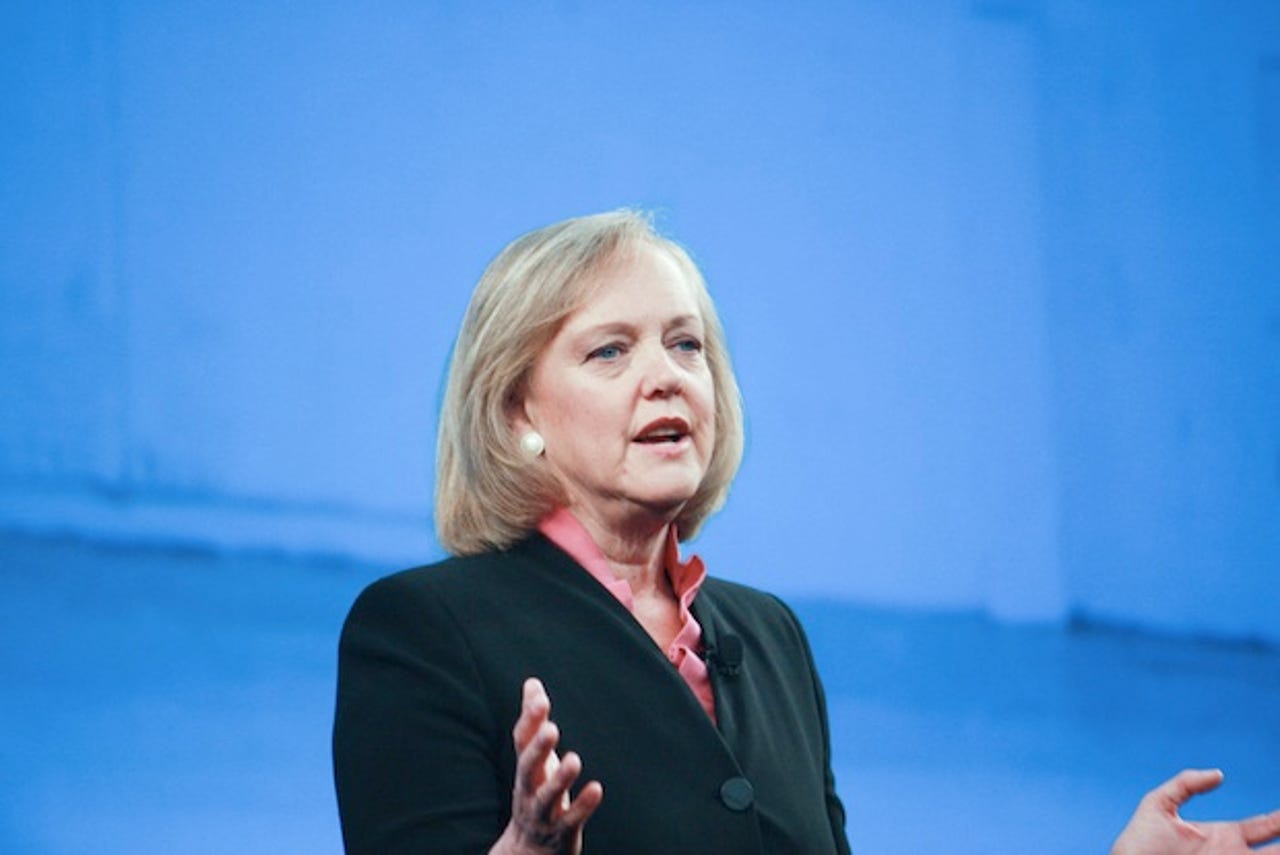HP Enterprise: The big questions ahead


Hewlett-Packard executives are outlining what HP Enterprise will constitute following the split from the PC and printer unit, but the vendor could face trouble differentiating itself from the pack.
On Tuesday, CEO Meg Whitman gave a keynote at HP's Discover powwow in Las Vegas. The takeaway is that HP will focus on cloud, security, software and mobility -- with services serving as glue between them. In a Bloomberg interview, Whitman said that there will be more mergers and acquisitions in the enterprise tech sector.
And on Wednesday, CTO Martin Fink outlined HP's vision for composable infrastructure, which will be built for specific workloads and applications. To go with this composable theme, HP will create an API network that will integrate partners such as Docker, Puppet Labs and VMware.
Hewlett-Packard News
Here's the catch on the HP Enterprise themes from Whitman and Fink: Those focus areas and composable themes aren't all that original.
In fact, I caught up with Dell's enterprise leadership in late April. Dell CTO Paul Perez talked about the composable infrastructure theme. He said:
"Where the world wants to go is to composable infrastructure. There will be much smaller building blocks for compute, networking and storage. Think of them as composed from stem cells in a disaggregated environment."
Dell chief commercial officer Marius Haas, an HP alum, has been spending his time working with customers on hybrid deployments and trying to take on more HP customers who are worried about the company's split.
As for the focus areas for HP Enterprise, you can strip HP from those areas and replace them with EMC, Cisco or IBM. What enterprise vendor isn't talking up cloud, security, software and mobility?
HP has been an early OpenStack proponent, but that bandwagon is pretty full already.
In other words, HP's Enterprise unit will have to define itself a bit beyond a new logo. And the sooner that strategy is rolled out the better. After all, Dell, Lenovo, Cisco and IBM are all looking to poach HP share.
With those questions in mind, Jefferies analyst James Kisner outlined a few unresolved issues for HP after the company splits. For our purposes, we'll focus on the enterprise unit and toss in a question of our own (will HP Enterprise be acquired?). These questions are likely to be answered closer to HP's split in November.
- The cloud strategy. HP told The New York Times that the company wasn't into the public cloud market since it didn't want to compete with customers. Fair enough, but HP denied it. HP is about the OpenStack-powered hybrid cloud, but needs to clarify the grand plan like rival IBM has. Related: HP: We're not leaving the public cloud.
- Server innovation. HP has delivered decent server gains and has found a way to play in the white box market as well as the data center. How HP battles Lenovo and Dell in a commodity server market will be interesting over time? Related: HP launches hyperscale Cloudline servers, aims for white box market
- Services strategy. HP's service unit has been limping for a while and it's unclear whether the company can get its footing amid pricing pressure, cloud and automation. Services revenue was down 16 percent in HP's most recent quarter.
- HP-as-a-service. HP's software unit is transitioning to subscriptions, but that is going to pressure revenue in the second half of 2015. HP needs software to perform if it's going to outgrow the market. In the second quarter, software revenue was down 7 percent from a year ago.
- Mergers and acquisitions. HP Enterprise will be a smaller, more focused company. But that reality only means it'll be easier to merge. When you consider the potential cost savings and ability to offer a complete stack, an HP and EMC combination could make sense. Whitman already has acknowledged tectonic shifts are spurring business tech combinations. HP and EMC (HPMC) will have to be examined again after the split.